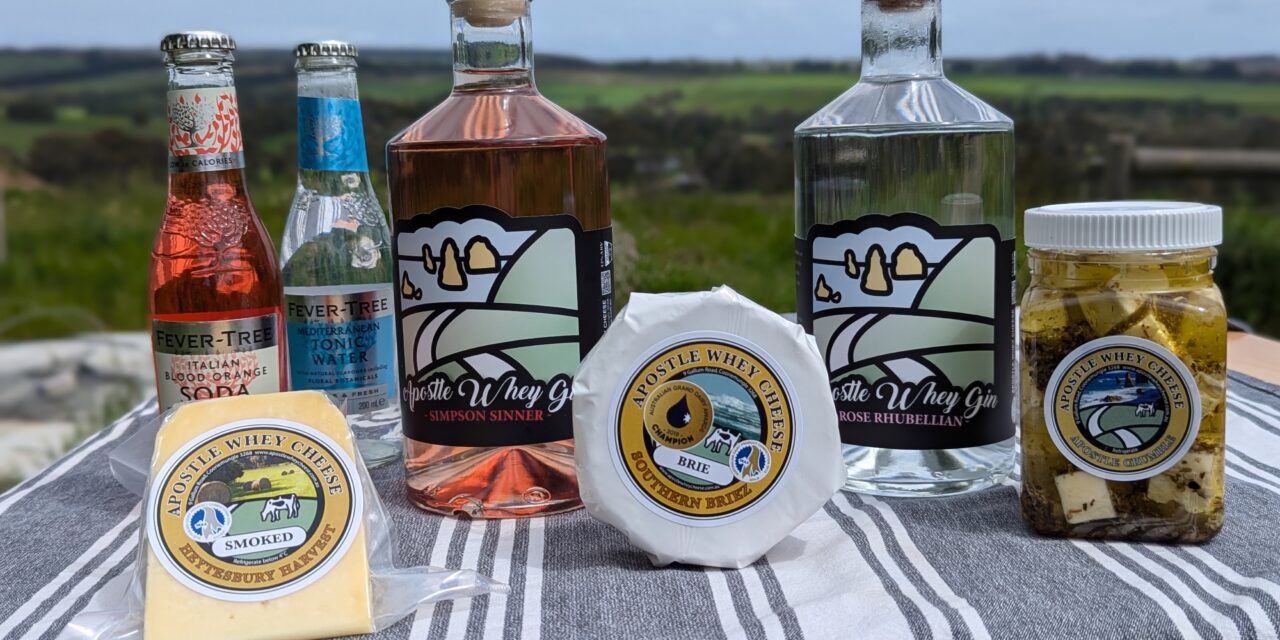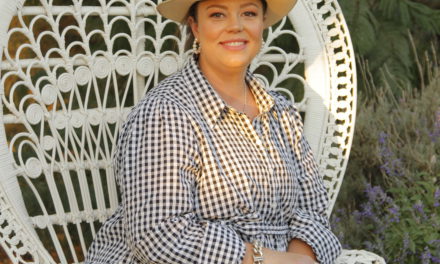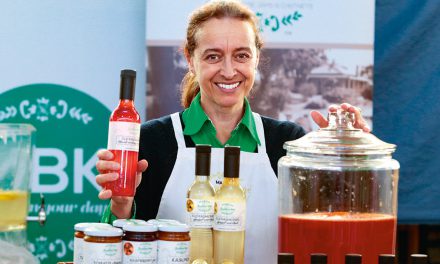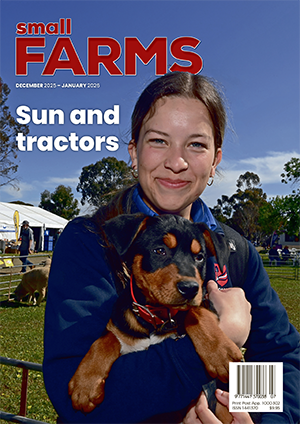Before subdividing his land, Julian Benson had an easy solution to a recycling problem. Now he is finding that if there is a will to look outside the box for an alternative, there is a whey.
When he had a big farm, Julian Benson’s cows helped him recycle the whey created through his cheese-making process.
Now that he has a small farm, Julian needed to come up with another way to use the byproduct.
The answer was gin — a solution that came as much out of left field as it did out of necessity.
The whey, which accounts for about 90 per cent of the cheese-making product at Apostle Whey Cheese near Port Campbell in south-west Victoria, was traditionally returned to the cows that produced the initial milk.
It proved to be a valuable way of boosting their diet, but last year youngest son Luke purchased the dairy farm off Julian and his wife Dianne, leaving them to concentrate on the cheese production and hospitality side of the business.
It also left them with a small, subdivided parcel of land and a dilemma about what to do with the whey — the byproduct liquid left from the manufacturing of cheese.
Before the subdivision, they had been depositing the whey back on the farm for the cows, adding a nice burst of energy to their diet.
While that can no longer happen due to the subdivision of the 1.5-hectare block for creating the Apostle Whey products, it turns out that converting whey into alcohol is another way of reducing the environmental footprint of dairy production.
The option came as a surprise to the veteran cheese-maker, who also creates milk and gelato from the dairy farm’s herd but had no idea it could be used in alcohol production.
“Now that we have subdivided, we have to keep all the waste produce on site,” Julian said.
“It can’t cross over the boundary into the dairy farm.”
An approach from Otway Estate about using the whey and turning it into alcohol for gin production provided an environmentally-friendly and potentially lucrative solution.
“It’s what they call the circular economy,” Julian said.
“We’re trying to make a product out of the byproduct of cheese-making.”
The whey is collected by Otway Estate, which then adds yeast and ferments it to produce about 4 per cent alcohol, with botanical flavours then added to the mix.
“We’re sending off about 2000 litres a week and they’re creating about 80 litres of alcohol,” Julian said.
Apostle Whey Cheese currently has two flavours available: Rose Rubellion, with a touch of rose and rhubarb, and Pepper Berry.
“You could add citrus in or other things to make different flavours, but I think we’ll keep it to three or four types,” Julian said.
Julian admits that prior to the approach from Otway Estate, he didn’t know the whey could be used in making alcohol.
“Sometimes you’ve just got to look outside the square,” he said.
“It’s just another product we can use to take advantage of what we’ve got, a way of using the byproduct and making money out of it.”
He is aware of a Tasmanian distillery making gin from sheep whey but not of any others using dairy whey.
In the first few weeks of stocking the gin, Julian has had a positive response to the offering, including three women each leaving with an $80 bottle, although nearly half of that is lost to tax.
“Gin is quite an expensive product. We’re hoping it could be quite lucrative,” Julian said.
“When we make the cheese, what’s left is the whey and that’s about 90 per cent of it. They make about 80 litres a week, or about 4000 litres a year, and I can’t drink it all, so I’ve got to try to sell most of it,” he joked.
Actually, Julian prefers non-alcoholic drinks, but he has had a sip of the gin and likes the taste and aroma.
The decision to sell the main property ends a 50-year farming career for Julian, who grew up in Broadmeadows but was inspired to become a dairy farmer by visiting his uncle’s farms in school holidays.
But, now in their mid-70s, the Bensons show no signs of slowing down in the Apostle Whey business and still enjoy the rural life.
“Having developed the farm, bred the animals and made a product that people enjoy, as a farmer you don’t get more satisfaction than that,” Julian said.
Cheesemaker finds a whey







